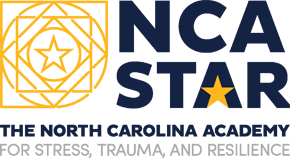Trained to take on trauma

Trained to take on trauma
Trauma-based care is a topic that has become ubiquitous within the mental health community in response to the many stressors people endure today – the pandemic, isolation, fear, poverty, health problems, crime, accidents, and abuse.
Counselors, psychologists, therapists, and other professionals struggle to help the vast numbers of traumatized people in their care.
“Traditionally within the mental health field, trauma was thought of as an area of specialization,” explains Dr. Rebecca Mathews, a clinical assistant professor of counseling.
“But we have found that all of us need to know how to provide trauma-informed care. It should be a universal protocol.”
In response, UNCG’s Department of Counseling and Educational Development developed the Trauma-Informed Professional Practice certificate training program, or TIPP.
Designed for mental health professionals, counselors, school counselors, and psychologists, the virtual program launched in 2022 is interactive and module-based, using videos, readings, and discussions.
“It’s helping the helpers,” says Anita Faulkner, who directs the UNCG NC Academy for Stress, Trauma, and Resilience through which TIPP is offered. “It will help them operate in a trauma-informed manner.”
In response to community requests, Faulkner and Mathews have also expanded TIPP to include an educator-focused program.
Social Innovation
It starts with a desire to solve acute community problems. It’s facilitated by critical partnerships. It grows out of creativity and cross-disciplinary savvy. As UNCG builds a culture of social innovation and entrepreneurship, NC communities reap the benefits.
“School districts reach out constantly to us for in-person training,” Faulkner says. “There is such a need, especially in rural schools who don’t have consistent access to mental health providers.”
“This program helps educators and school systems by providing some understanding of trauma. We’re not asking educators to be mental health clinicians, but we are giving them the training to notice what’s going on in their classrooms and tools to effectively communicate with their students and the parents.”
In addition to eight core trauma modules, the new program has eight additional modules specifically for educators, Faulkner says. “We built it based on our research and conversations with K-12 educators from across the country who shared samples of the situations they encounter in their schools.”
Specific and timely, the program trains participants to recognize what trauma looks like in the classroom and apply trauma-informed principles to issues including school safety, classroom strategy, resilience, and educator wellness.
Story photo: Dr. Christian Chan, seen above teaching a graduate class on group counseling theory, is one of the experts professionals learn from in the virtual program.
